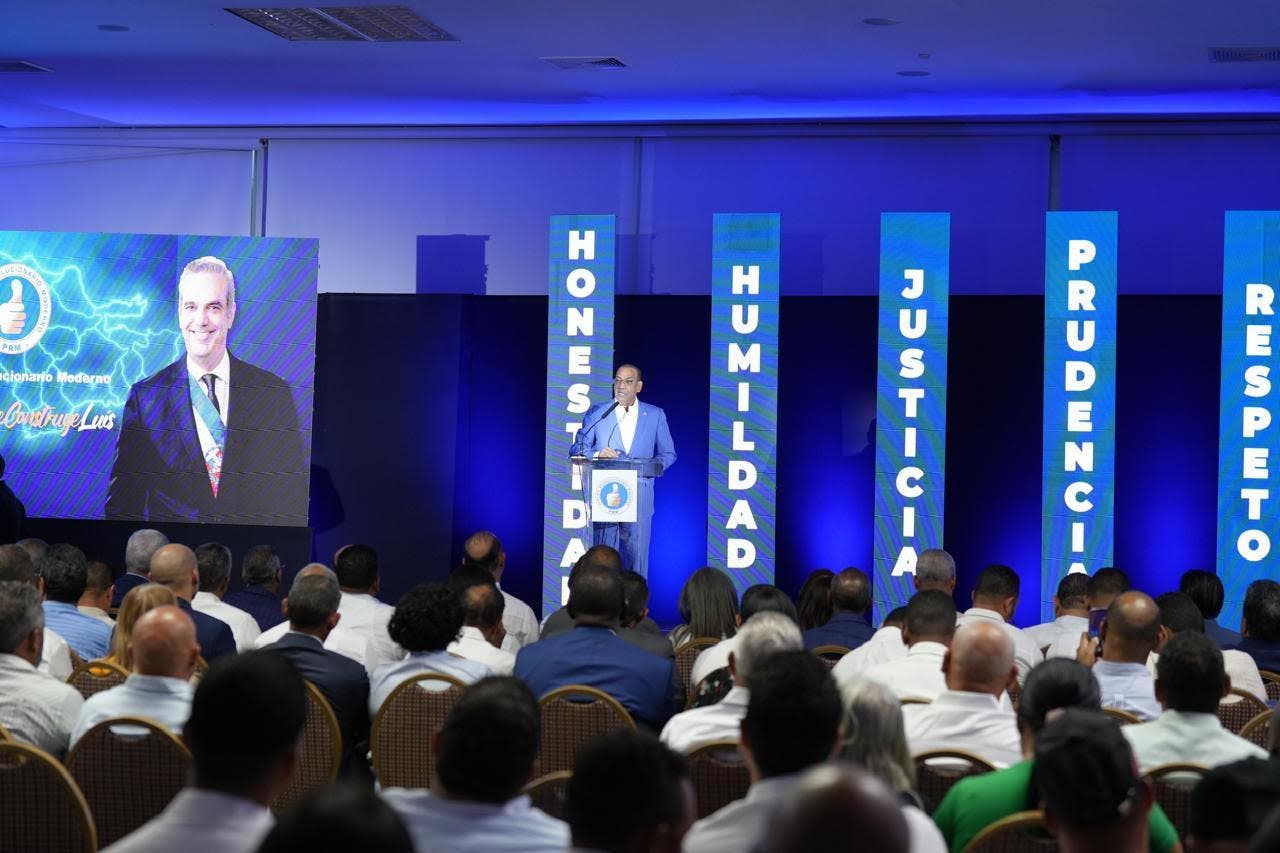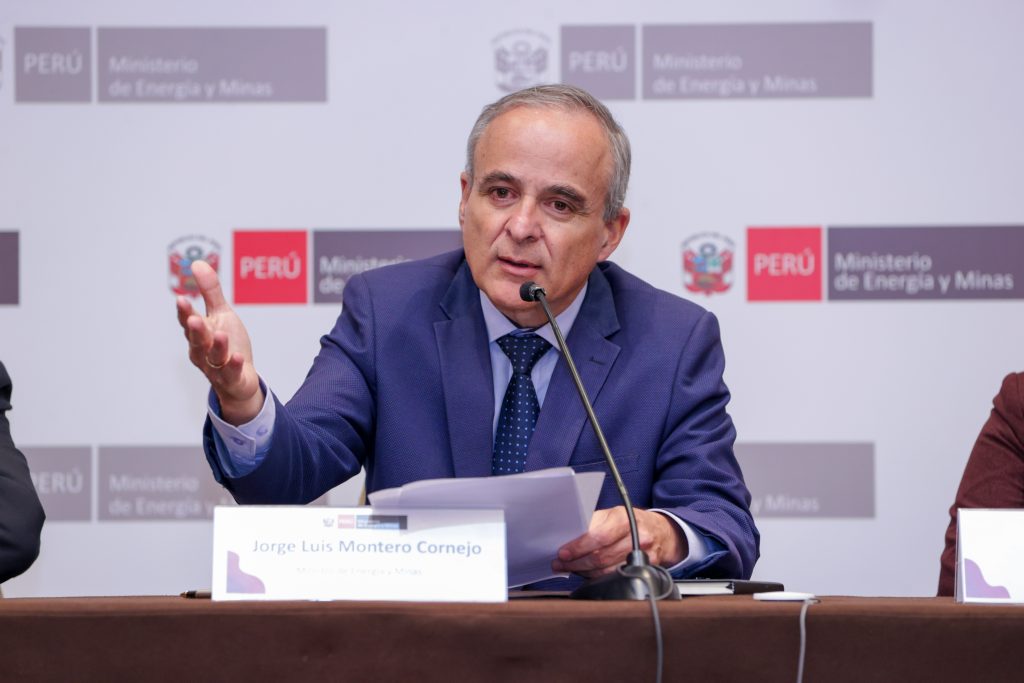Santiago.-The National Secretary of Organization of the Modern Revolutionary Party (PRM), and Minister of Public Works, Deligne Ascencionassured this Thursday that until 2020, the Dominican Republic was about to fall into a dictatorship like that of Maduro in Venezuela, that of Daniel Ortega in Nicaragua, but that President Luis Abinader rescued the country.
“That was the country that Luis rescued, on the verge of falling into a dictatorship like that of Maduro in Venezuela, that of Daniel Ortega in Nicaragua or like the social crisis of Ecuador and Peru,” Ascención explained in his conference “The country that builds Luis”, dictated by the UTESA Convention Center for the leadership, legislators and municipal authorities of the PRM in the 14 provinces of Cibao.
He argued that the current situation in the country is far from what Abinader’s government found in 2020, in the midst of a pandemic, with “a weak institutional framework” that caused the suspension of the February municipal elections, on the verge of a social and political crisis. and “with deep corruption resulting from 16 years of government” of the PLD.
You may also be interested in:
“Comrades, we must not forget and have as part of our story that Luis and the PRM saved Dominican democracy, and I have cited the events that brought it to the brink of collapse,” he quoted.
Last week, Ascención gave a similar conference for the National District and the Santo Domingo Province and as the new year enters, it will be repeated for the 10 provinces in the south and the 6 in the eastern region.
Ascención contrasted that, however, today the country has an independent public ministry and a regime of consequences, there is a frontal fight against organized crime, a police reform is being developed, and an active fight against corruption is maintained.
He said that the independence and apoliticity of the High Courts also prevails, there is a proven strength and independence of the Central Electoral Board (JCE) and the Superior Electoral Tribunal (TSE), sacred respect for the freedom of the press and its role of social audit and Constitutional reforms have been made that ensure institutional strength and democratic stability.
In addition, work is being done on reforms to the Labor Code and Social Security and he added that the quality and reputation of its democratic institutions and the dedication to honest work of President Abinader have generated levels of confidence in the national productive forces and international investors. that have made the country a leader in economic growth in the region.
“The advances in tourism, in free zones, industry and micro, small and medium-sized businesses have substantially multiplied jobs to the point that, according to the Central Bank’s figures, this year we exceeded 5 million jobs, a record level in our country. . At the same time we have controlled inflation levels, and the sum of all these achievements is what has made us the seventh economy in Latin America,” he summarized.
He also cited the social advances represented by the coverage of the National Health Insurance (Senasa), the massification of technical-professional training through INFOTEP, the impact of social programs in reducing poverty, extreme poverty and malnutrition, and savings to poor households and the security that their children have with school transportation provided by the Ministry of Education.
Development in 10 years
He recalled that in the last meeting of the Council of Ministers, President Abinader set the goals for 2028, creating the basis so that in 10 years the country is moving towards being a developed nation in terms of income levels and quality of services.
Ascención quoted President Abinader when he said that “this objective should not be seen today as a utopia, but as a commitment for everyone to be able to achieve it.”
In the important aspect of national sovereignty, the speaker cited the achievements obtained by the country through its effective diplomacy, especially on the Haitian issue; the creation of the smart wall on the border, immigration policy and technicalization of the workforce
Works that transform the country
He listed that the PRM government and allies are carrying out a set of works that are transforming the country, citing in Cibao the most complete intervention carried out in the 100 years of the Duarte highway, the main national highway; the monorail and cable car system, sanitation of Gurabo stream; and transformation of the Historic Center of Santiago. Also in Santiago, the Tourist Highway, North and South Beltways, expansion of the entrance to Santiago; Navarrete ring road.
Likewise, the development hub of Manzanillo and a road network that has interconnected the entire Northwest Line, while important infrastructure works have been built in the Northeast. In La Vega-Jarabacoa, Chero Crossing in Moca, Piedra Blanca Beltway and Maimón.
“We have fulfilled our government program by bringing public investment where people live,” he said, “and I am only referring to a part of the works carried out throughout Cibao,” he explained.
Relevance of the Modern Revolutionary Party
He said that the country is witnessing how in just 10 years of existence the PRM became the largest party in the entire political history of the country.
“You know how we held massive primaries, which led to mobilizing one million 200 militants, who participated in creating the organic structure that led us to the electoral victories of 2020 and 2024.
“Today we have before us the challenges of maintaining that party strength on which support will depend so that our president, the PRM and allies deepen the changes to ensure victory also in 2028.
“As Peña Gómez taught us on so many occasions, nothing and no one is above the interests of the people and the party; that is the key to the successes we have achieved and those we will continue to achieve,” he pointed out.















